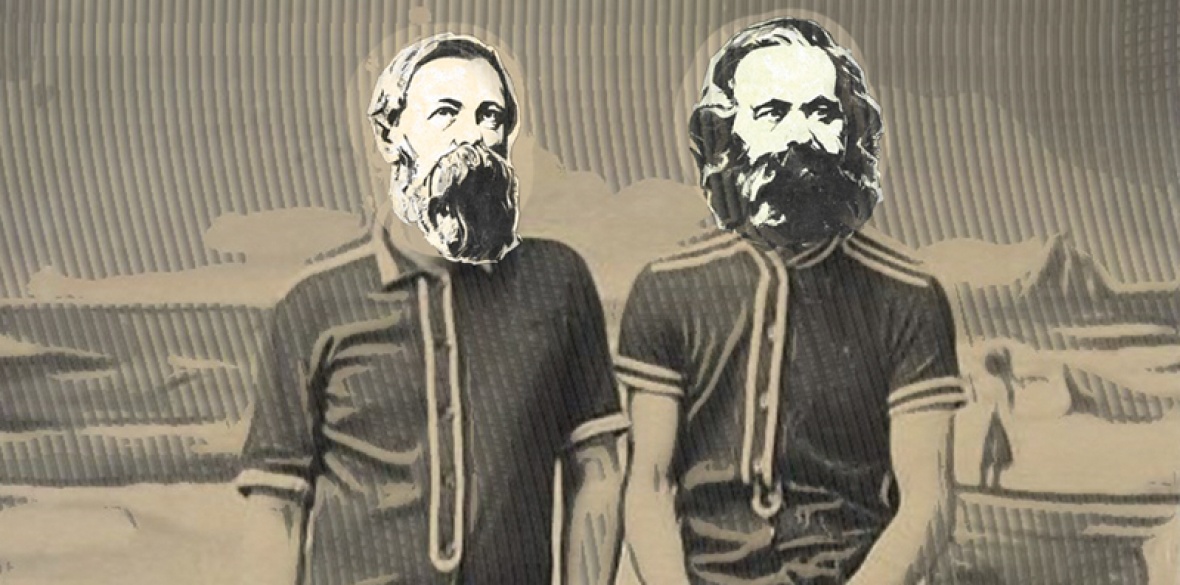This is the last article you can read this month
You can read more article this month
You can read more articles this month
Sorry your limit is up for this month
Reset on:
Please help support the Morning Star by subscribing here
WITH many holidaymakers — time and money allowing — set to come to Britain again this year, it’s interesting to look back to some of the seaside experiences of Marx and Engels.
Both were great enthusiasts for English seaside resorts, although not often together.
The issue of government spies and infiltrators into radical and labour movement organisations is a current concern. It is, however, nothing new.
On August 25 1871, Marx wrote to Jenny Marx from Brighton, where he had gone for his health, that he had encountered a familiar individual…
He doesn’t speculate on why he was being watched but it is likely to have been in the wake of the defeat of the Paris Commune.
Marx and Engels had been central in helping Communards, who had escaped brutal repression in Paris and made their way to England.
He wrote: “I forgot to tell you yesterday of a curious evenement [event].
“The second day after my arrival here, I met a chap in a waiting posture at the corner of my street.
“He was the same man whom I had told you about before as having accompanied Engels and myself on our way home on a number of occasions.
“Engels had thought he was a spy and we once gave him a ‘hint.’
“As you know, generally speaking I am not good at detecting spies. But this fellow has obviously and undeniably dogged my every step down here.
“Yesterday, I became fed up with it, so I stopped, turned round and stared at him with my notorious eyeglass. What did he do? He doffed his hat very humbly and today he no longer honoured me with the pleasure of his company.”
The previous year on August 30 1870, Marx wrote to Engels, noting that he was leaving Ramsgate (on a steamer) the following day for London.
He complained to Engels that “the English have thronged all the seaside resorts on account of the war” — and this had raised the price of the lodgings the Marx family had and made them “expensive.”
The war that Marx referred to was the Franco-Prussian war, which had started on July 19 1870, and by his account meant that tourists destined for France (quite probably via Thomas Cook) had decided to holiday at the English seaside instead.
Marx had other complaints. First, his accommodation was “damned draughty.”
Second, he wrote that he was almost paralysed in a “certain place” and needed to consult is doctor in London.
Marx had written to Engels on August 8, noting he was off to Ramsgate on the 9th rather than Brighton because, on investigation, he thought Brighton would be too hot
On July 15 1874, Marx was in lodgings in Ryde on the Isle of Wight.
He wrote, as he did regularly, to Engels who was in Ramsgate. This was rather a reversal of locations since Marx was often in Ramsgate and Engels frequently in Ryde.
Marx noted that one of his daughters, Laura, had been to stay and he had accompanied her to the Portsmouth ferry when she had to leave.
“When we went down to the pier to see her off we witnessed the arrival from Brighton of a temperance gang back from an excursion.
“Half of them were drunk. As an old Englishman next to me remarked: ‘It was the worst lot he had ever met with in his life’ and neither have I ever encountered such a mob of stunted, loutish and smutty-minded idiots all at once… For foreigners this sample of Freeborn Britons would have been an amazing sight.”
British history which Boris Johnson probably does not want to be remembered.
Keith Flett is a socialist historian.










